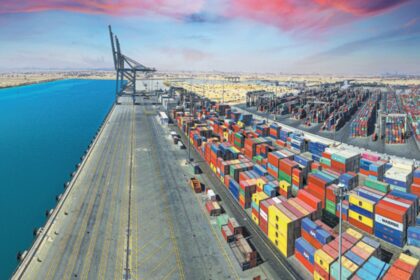Theft is the culture of the world.
Through one way or another, as capitalism unleashed a world of ideas upon us, some of the earliest men set out to think. They thought and so did I, a plain girl writing this article from the safety of my bed centuries later; “Just don’t man, stop.”
Consequently, the thinking led to a very easy line of profit. Well what if… one was to… for example, take the free water on God’s given earth…package it fancy for ease of portability and storage — and sell it? Imagine if we could just extract water from lands, so that when people wanted water, they’d have to buy it! Brilliant.





Somewhere along the lines, we’ve lost the plot. In this free world we introduced money, and then made it the exchange currency for the resources freely available. Theft is the way of the world. Money is the distraction.
So tell me, why is theft bad when it is essentially creating the opportunity to seize a good? Is that not how things work anyways? Is it because you must race to commodify those goods yourself to access them? Behind a business to generate profit for yourself? The same profit you will then use to assure yourself you’re not a thief?

If you’re reading the right things, you’ll know our subjective reality, where theft and crime are crass and punishable, are fairy tales. In an imperial world, where it is easier to commit genocide for the rich, than it is to get proper healthcare for women — it is more a matter of who can commit this crime and who is not to step out of line, rather than about good and bad.
More often than not, you, the layman — the proletarian, or the working class individual — are the commodity that cannot step out of line. The hierarchy works its way deeper; depending on your race, gender, geographical location and socioeconomic class your punishment and crime will produce different outcomes and consequences.
The kicker? You’re also the one being stolen from the most.

Ethical consumption is so interlinked to the everyday impact we make as individuals — but why is nothing ethical available? Or affordable?
How come, you should be the one to apply ‘good’ to life and steer clear of theft when your non-theft is profitable and at the expense of another human fellow who will pay for you through more valuable currencies than money? Labor, starvation, drought, exploitation, genocide? Is that even good anymore?
We live in a reality where we have enough clothes to clothe the next 6 generations, but continue to produce without accounting for the costs of this overproduction and in turn over-consumption.
In a world of trends, where a shortening attention span is also directly linked to the speed with which trends come and go…why shouldn’t you be able to keep up? Why shouldn’t you use AI despite knowing that its environmental implications are unaffordable… even irrecoverable? Why shouldn’t you try to create a business venture about an unneeded good you can commodify and make essential for the market?
Why shouldn’t you steal?

The truth I’m bringing you towards is simple: you’re always stealing. Yes, even when you pay for the goods you buy. It might not be directly your fault the systems function this way — but your participation and awareness of them are variables you control.
It is a matter of stealing in a way that causes least harm that is the real issue. How does one do so? Function in a world that forces you to steal? That steals from you?
Here’s a link to my previous article that talks about how you can improve your critical thinking skills:
http://jaridatoday.com/academias-reliance-on-technology-an-analysis-of-how-we-ended-up-here -5395/
TLDR: my conclusion for the article is to read. And so I’ll invite you to look for answers by increasing knowledge.
Here is a comprehensive list of books to get you started:
- This Changes Everything: Capitalism vs The Climate by Naomi Klein A book that links the climate crises and capitalism — explaining how the two are mutually inclusive.
- Disposable People: New Slavery in the Global Economy by Kevin Bales Bales explores how slavery still exists, masked as the norm in the global supply chain that produces our everyday products.
- Winner Takes All; The Elite Charade of Changing the World by Anand Giridharadas This book dissects wealth, power and systemic inequality through the critique of elite marketed philanthropy. The books is straightforward and its relatability makes it a compelling read.
If you’re new to nonfiction, and feel it’s easier to digest these topics through fiction, I’ve got you! Here’s a list:
- Never Let Me Go by Kazuo Ishiguro
This book talks about complacency in the systems that commodify our very autonomy through the systemic theft of human life for the life of others.
- Parable of the Sower by Octavia E. Butler
Discussing climate collapse, social inequality, and a system that has commodified life itself. 3. Piranesi by Susanna Clarke
A book that talks about the costs of moving away from nature, losing ourselves to advancements while watching our connection to the habitat fading — or only picking up for theft and exploitation to be the reason to find the answers we’ve lost in the process.

















Very well written 👍🏻